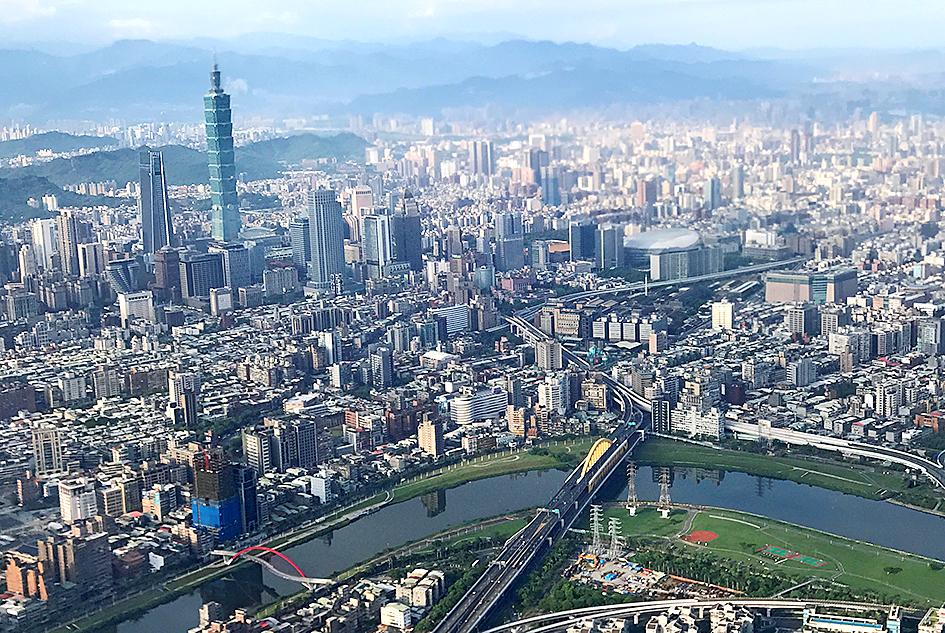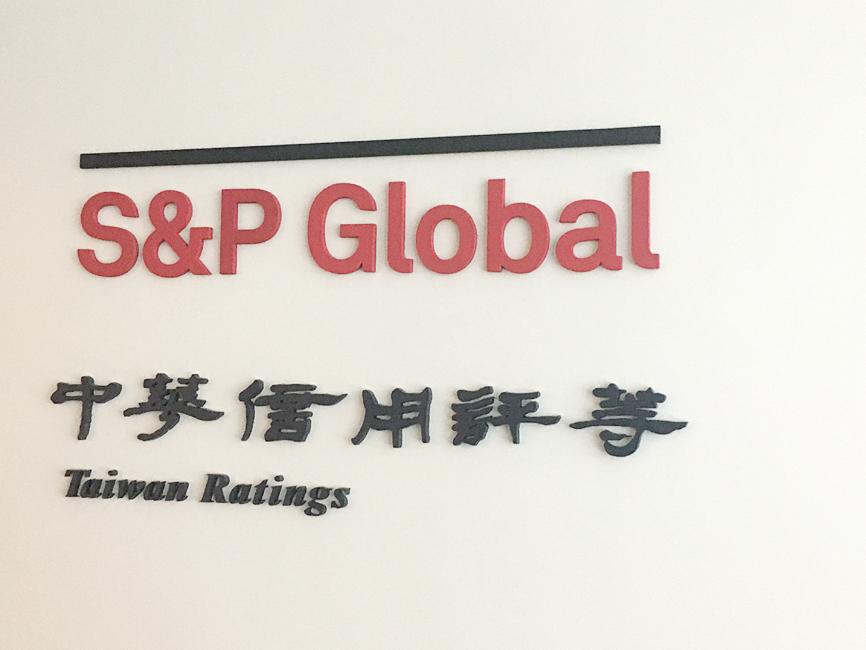S&P Global Ratings yesterday raised Taiwan’s credit rating to “AA+” from “AA” with a stable outlook, driven by expectations that global demand for semiconductor exports would offset risks associated with longstanding cross-strait tensions.
Taiwan previously held the “AA+” rating 21 years ago, when in 2001 it was downgraded to “AA-.”
The return is driven by expectations that the nation would continue to benefit from global digitalization and maintain healthy fiscal metrics over the next three to five years.

Photo: Reuters
“We anchor our ratings on Taiwan on its strong external position and robust economic support,” the international ratings agency said, projecting GDP growth of 2.8 percent for this year and 2.6 percent for next year and 2024.
Demand for chips used in vehicles, consumer electronics and office equipment remains robust, it said, adding that 5G network deployment, data processing, electric vehicles and artificial intelligence technologies are also driving momentum.
The nation’s top semiconductor foundries have been aggressively expanding their capacity to alleviate global supply shortages, with their efforts accounting for a 17.3 percent spike in private investment last year.

Photo: Cheng Chi-fang, Taipei Times
The investment surge is expected to continue this year in light of capital spending plans unveiled by major local firms, it said.
Taiwan’s monetary flexibility is strong, as the central bank has demonstrated sound management, which has kept inflation low and stable despite ample liquidity in the economy, it said.
The relatively flexible exchange rate for the local currency also helps cushion economic and financial shocks, the agency said, adding that Taiwan’s inflation has been among the lowest in Asia.
Inflationary pressure is slowly building amid surging global commodity prices, and although the central bank last month raised interest rates by 0.25 percentage points, the policy rate remains fairly low, it said.
Low funding costs and ample liquidity have kept the government’s interest burden at less than 5 percent of general government revenue in the past few years, it said.
Despite rising numbers of COVID-19 cases, Taiwan appears to be moving toward opening up, supported by high vaccination rates, acceptable burdens on the healthcare system and mostly mild symptoms among recent cases.
In the absence of lockdowns, private consumption could recover soon, and if the government lifts border controls, tourism flows could provide a further boost to the economy, it said.
In the long run, stable international trade and cross-strait relations would remain the linchpin for Taiwan’s economic performance, it said.
Continued access to customers and suppliers from the US and China are crucial for Taiwan’s export-driven manufacturers to remain competitive and productive, it added.
However, an aging population and low labor productivity growth could lead to increased social and welfare spending, a fast-growing item on the government’s budget.

EUROPEAN TARGETS: The planned Munich center would support TSMC’s European customers to design high-performance, energy-efficient chips, an executive said Taiwan Semiconductor Manufacturing Co (TSMC, 台積電), the world’s largest contract chipmaker, yesterday said that it plans to launch a new research-and-development (R&D) center in Munich, Germany, next quarter to assist customers with chip design. TSMC Europe president Paul de Bot made the announcement during a technology symposium in Amsterdam on Tuesday, the chipmaker said. The new Munich center would be the firm’s first chip designing center in Europe, it said. The chipmaker has set up a major R&D center at its base of operations in Hsinchu and plans to create a new one in the US to provide services for major US customers,

The Ministry of Transportation and Communications yesterday said that it would redesign the written portion of the driver’s license exam to make it more rigorous. “We hope that the exam can assess drivers’ understanding of traffic rules, particularly those who take the driver’s license test for the first time. In the past, drivers only needed to cram a book of test questions to pass the written exam,” Minister of Transportation and Communications Chen Shih-kai (陳世凱) told a news conference at the Taoyuan Motor Vehicle Office. “In the future, they would not be able to pass the test unless they study traffic regulations

GAINING STEAM: The scheme initially failed to gather much attention, with only 188 cards issued in its first year, but gained popularity amid the COVID-19 pandemic Applications for the Employment Gold Card have increased in the past few years, with the card having been issued to a total of 13,191 people from 101 countries since its introduction in 2018, the National Development Council (NDC) said yesterday. Those who have received the card have included celebrities, such as former NBA star Dwight Howard and Australian-South Korean cheerleader Dahye Lee, the NDC said. The four-in-one Employment Gold Card combines a work permit, resident visa, Alien Resident Certificate (ARC) and re-entry permit. It was first introduced in February 2018 through the Act Governing Recruitment and Employment of Foreign Professionals (外國專業人才延攬及雇用法),

‘A SURVIVAL QUESTION’: US officials have been urging the opposition KMT and TPP not to block defense spending, especially the special defense budget, an official said The US plans to ramp up weapons sales to Taiwan to a level exceeding US President Donald Trump’s first term as part of an effort to deter China as it intensifies military pressure on the nation, two US officials said on condition of anonymity. If US arms sales do accelerate, it could ease worries about the extent of Trump’s commitment to Taiwan. It would also add new friction to the tense US-China relationship. The officials said they expect US approvals for weapons sales to Taiwan over the next four years to surpass those in Trump’s first term, with one of them saying